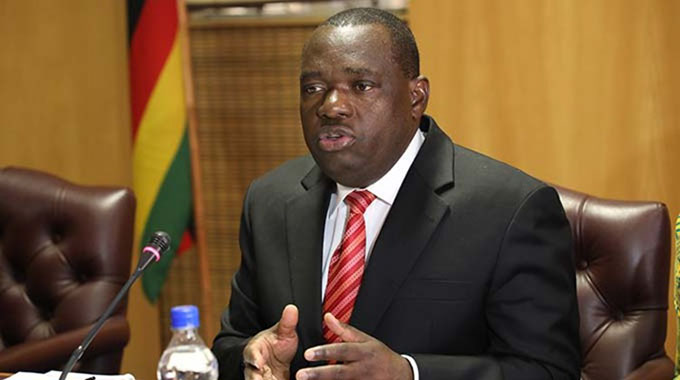Police tighten lockdown enforcement countrywide

Herald Reporters
Enforcement of the present extended health curfew of 6pm to 6am under the level four national lockdown was far tighter on Wednesday evening, with those not supposed to be on the roads unable to pass checkpoints but with several police contingents inadequately briefed over allowing through staff and vehicles in essential services.
The curfew, designed to stop most movement at night, had been relaxed in stages to 10pm to 6am by the end of last year under the then prevailing level two lockdown. With the spike in infections and deaths, and the resultant return to level four lockdown, the curfew reverted to 6pm to 6am at the beginning of the month.
Many essential services and permitted operations, such as supermarkets and pharmacies, close at 3pm, meaning the last customers, who are generally local and living within 5km, should easily be home well before curfew. Even staff, who can be delayed, should be home in most cases although some who use public transport and need two buses can take more than two hours once all necessary walks and waits have been factored in.
But that still leaves a group of shift workers in essential services, starting with doctors and nurses, but including others such as media workers, those in food processing and delivery and the like who, are allowed to move between home and work, but not on other routes, during curfew hours.
On Wednesday night, the first night of an announced clampdown on curfew violations by the police, The Herald was inundated with calls from motorists who claimed they were stuck at various checkpoints across the country.
Even our journalists had challenges passing checkpoints, especially in Norton and at Delport Road turn-off along Seke Road where scores of motorists without exemption letters were held for several hours.
Commander for Chitungwiza Policing District Chief Superintendent Nhetekwa later allowed the journalists to pass through the Delport Road checkpoint, but it took them long to navigate their way out of the congestion since the traffic queue stretched for almost 2km from the checkpoint.
A police Assistant Commissioner only identified as Nhete, who as a senior police officer is counted as a central essential worker, also spent hours in the traffic jam despite driving a police-branded vehicle and wearing his uniform.
Chitungwiza Central Hospital nurses and doctors were also held at the checkpoint, while three ZBC staffers going for night duty in a clearly-marked staff bus, finally found their way out after two hours.
Some security agents in the traffic looked agitated at the delays and continuously pleaded their cases.
After some three hours, police allowed close to 50 vehicles to pass unchecked to pave way for proven essential service providers and the road was blocked again.
At Karina Service Station in Norton, the situation was equally tight and it took the intervention of top cops to allow staffers from The Herald, who had finished work at 6pm, to be allowed through after their shift on their way home.
In a statement yesterday, national police spokesperson Assistant Commissioner Paul Nyathi reiterated that only members of the essential services will be allowed passage at police roadblocks and other checkpoints after 6pm during curfew hours.
“Those knocking off duty at 3pm should ensure that they go home straight after work. Members of the public are implored to plan their movements carefully so that they are not inconvenienced during the curfew period,” he said.
On Wednesday, police arrested 3 102 people across the country for offences related to contravening lockdown regulations.
Of these, 1 294 were for unnecessary movement and 1 178 for failure to wear face masks, bringing the cumulative total of arrests to 347 264 since March 30, 2020.
In Masvingo, police have beefed up security at roadblocks along major highways and main routes into town to clamp down on unnecessary movement of people. Undesignated routes used by people to circumvent vetting at roadblocks have also been sealed. This has seen a slight decrease in the volume of traffic in the city centre.
Patrols in high density areas have forced shebeens, which were recording brisk business recently, to close.
In Beitbridge, lockdown compliance levels have been gradually improving after additional police were deployed.
In the first week after the level four lockdown was announced, enforcement was a challenge due to the presence of hundreds of travellers passing through the town daily.
Non-essential shops have remained closed with the police maintaining a high visibility in crime hot spots in both the eastern and western suburbs.
Security personnel in Chinhoyi continue to tighten screws against those defying the lockdown regulations, with raids conducted in high density suburbs by the police in conjunction with the army to fish out those illegally selling alcohol.
Pirate taxis, commonly known as mushikashika, are also being targeted. But there are reports of transporters ferrying people from Chinhoyi to Mhangura, Chegutu, Karoi and Harare, who are circumventing police checkpoints while the unlucky ones allege they were paying a US$5 “facilitation fee” to security units.
A 35-year-old woman who had turned her house into a shebeen was arrested yesterday.
Central Chinhoyi was deserted by 3pm yesterday but movement of people, many without face masks, was as usual in high density suburbs like Chikonohono, Gadzema, Hunyani and Ruvimbo.
Provincial police spokesperson, Inspector Margaret Chitove, warned corrupt police officers that they risked getting arrested and losing their jobs.







Comments